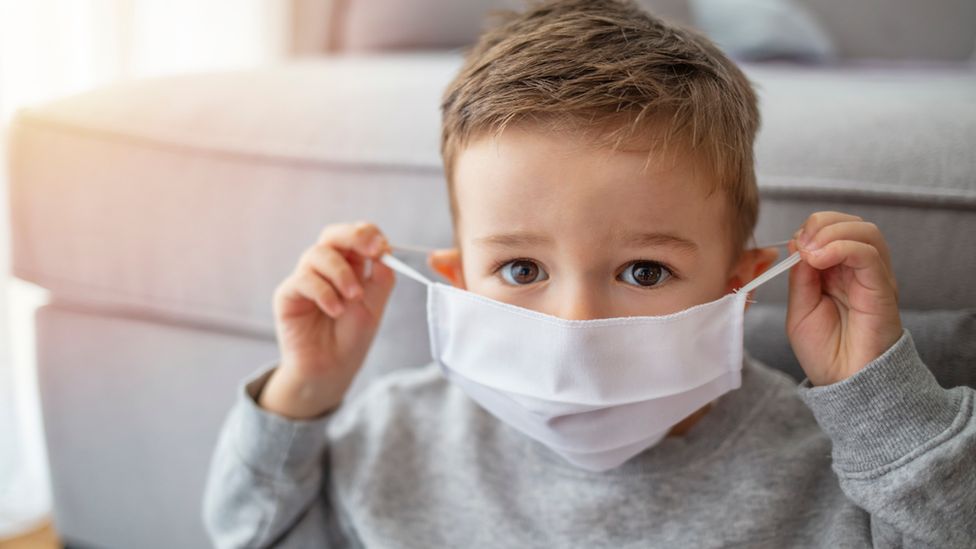A new study found that infants with certain immunodeficiency disorders had anomalies in genes that govern the body’s immune system against viral infections and are at a greater risk of mortality due to COVID-19.
The findings were reported in the Journal of Allergy and Clinical Immunology. The majority of children infected with the SARS-CoV-2 coronavirus have a mild sickness or no symptoms at all. However, in a tiny number of cases, significant problems may arise.
“Mortality is much higher among children with primary immunodeficiency diseases infected with SARS-CoV-2. Our results indicate that basic immunological examination and genetic analysis should be conducted in children with severe COVID-19 or multi-inflammatory syndrome (MIS-C). The clinicians will then be able to help these children with more precise therapies based on their genetic changes,” says Qiang Pan-Hammarstrom, professor at the Department of Biosciences and Nutrition, Karolinska Institutet, who led the study.
It is debatable how the virus affects people with primary immunodeficiency illnesses, which are genetic and congenital immune system disorders. Even among these people, some have severe COVID-19 symptoms, while others have minimal or no symptoms.
Karolinska Institutet researchers evaluated young individuals with primary immunodeficiency illnesses (also known as inborn errors of immunity, IEI) who acquired severe or critical SARS-CoV-2 infection to study this further and try to identify genetic causes for severe forms of COVID-19. Genetic and immunological tests were carried out.
“Our results clarify the molecular mechanism of these immune diseases, which opens up the possibility of developing a more targeted therapy. The knowledge acquired from the study also allows us to develop better strategies for the treatment and prevention of severe COVID-19 disease in these patients,” says Qiang Pan-Hammarstrom.
The study included 31 children aged five months to 19 years. All children had some type of primary immunodeficiency disease without a molecular diagnosis and suffered from severe or critical COVID-19. Participants were recruited from August to September 2020 in Iran. None of the children were vaccinated against COVID-19.
Eleven of the children, more than one-third, died of complications from the infection. Five children, 16 per cent, met the criteria for multi-inflammatory syndrome, MIS-C. Some of the children lacked antibodies to the coronavirus.
“This suggests that many children with this type of immune disease cannot produce antiviral antibodies and therefore would not have the full benefit of vaccination,” says Hassan Abolhassani, assistant professor at the Department of Biosciences and Nutrition, Karolinska Institutet, and the study’s first author.
Genetic analyses showed that more than 90 per cent of the participants, 28 children, had mutations in genes that are important for our immune defense, and that could explain their immunodeficiency. An important mechanism was mutations that affect proteins that regulate the immune system during virus infection, known as interferons.
The analyses of the patients’ immune responses showed that children with MIS-C had immunological profiles that differ from the profiles of children with primary immunodeficiency but without MIS-C.
The study also includes a literature review, where the researchers globally found reports of approximately 1,210 patients with primary immunodeficiency disease and COVID-19. About 30 per cent of them were children. The mortality rate among children with primary immunodeficiency disease and COVID-19 was more than eight per cent, compared with about 0.01 per cent among children in the general population.
The study is limited to severe cases of COVID-19, infected with the original strain of the virus, and non-vaccinated children. Further studies are needed to evaluate the importance of different virus variants and vaccines in this patient group.
The study was conducted within the research consortium ATAC, funded by the European Commission in response to the COVID-19 pandemic and coordinated by Karolinska Institutet. Collaboration with Uppsala University, Tehran University of Medical Sciences (Iran), Iran University of Medical Sciences, Ahvaz Jundishapur University of Medical Sciences (Iran), North Khorasan University of Medical Sciences (Iran), Howard Hughes Medical Institute (USA), Rockefeller University (USA) and Necker Hospital for Sick Children (France) were also crucial for the implementation of the study.
The study was also funded by the Swedish Research Council and the Knut and Alice Wallenberg Foundation.





